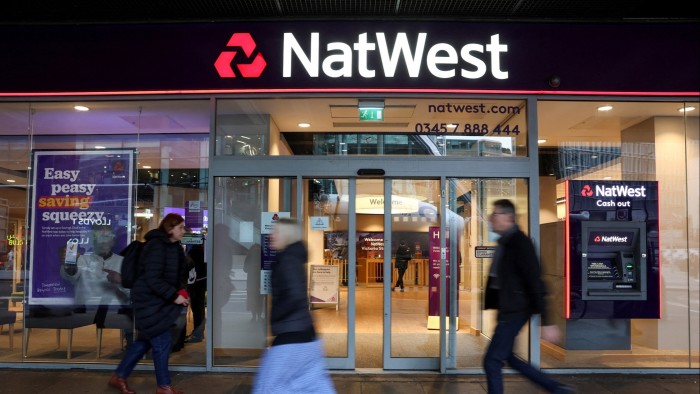Unlock the Editor’s Digest for free
Roula Khalaf, Editor of the FT, selects her favourite stories in this weekly newsletter.
Talk about the British economy this year has tended to match the winter weather, with a thick blanket of cloud hanging over the entire country. Expectations are so low that even a 0.1 per cent increase in fourth-quarter GDP was considered surprisingly good. Updates by big banks this week, however, suggest further rays of light are poking through.
Barclays and NatWest reported better than expected annual results. And, while it is easy to say one is optimistic — as NatWest chief Paul Thwaite did on Friday — a closer look at the numbers suggests bosses actually mean it. Which is good, because the biggest have a good insight into what makes British consumers and businesses tick.
Provisions for potential bad loans in Barclays’ UK business fell almost 50 per cent year on year in 2024, excluding the effect of buying a portfolio of loans from Tesco. The bank even released £29mn that had been set aside for expected defaults in loans to small and medium-sized businesses. NatWest’s impairment losses fell almost 40 per cent.

Banks use various potential economic scenarios when working out expected credit losses. The baseline estimates tend to be based on consensus figures, which in this case will have been set before the Bank of England downgraded its growth forecasts earlier this month.
However, the banks have more control over how much emphasis to put on different outcomes, and both Barclays and NatWest reduced the relative weighting of their downside scenarios and increased the likelihood of the upside.
There is still plenty of risk around. The banks mentioned the potential impact of tax rises, such as Labour’s plans to increase employers’ national insurance contributions. But in the event, both slashed their “economic uncertainty” provisions rather than adding to them. NatWest noted that any labour market impact from higher tax burdens “is likely to be moderate”.
Meanwhile, lending and deposit balances are growing. Higher savings could mean some customers are lacking confidence, but at least that means they have a cushion if conditions deteriorate.
Investors weren’t so enthusiastic. Shares in Barclays and NatWest dropped on the day of their announcements. But those slides should be put in the context of massive recent stock price rallies — both have roughly doubled in value over the past 12 months.
These are not sunlit uplands. UK growth is still sluggish. But it is also important that businesses do not talk themselves into a recession. When you’ve barely seen the sky for two months, even a brief break in the clouds should be appreciated.


